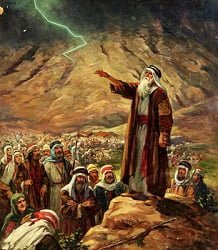As presented at the 62nd GC Session of the Adventist Church, the Southern Asia Division (SUD) is carrying the message of Jesus to a region filled with diversity and spiritual opportunity. Covering Bhutan, India, and the Maldives, this division is home to 1.1 million members worshiping in 4,598 churches across its vast territory. Despite many challenges, the church in Southern Asia is working tirelessly to reach millions with the hope of the gospel, using creative evangelistic initiatives and a spirit of unwavering faith. Watch this inspiring report and discover how God is moving powerfully through the Southern Asia Division as they continue their mission to prepare hearts for Christ’s soon return. 🔗 Learn more: https://sudadventist.org/ SUBSCRIBE to the official Seventh-day Adventist Church channel: https://www.youtube.com/@AdventistOrgChurch 🌐 Visit: https://adventist.org Find us on social media by following the links below:
Facebook: https://www.facebook.com/TheAdventistChurch
Twitter: https://x.com/adventistchurch
Instagram: https://www.instagram.com/adventistchurch Source: https://www.youtube.com/watch?v=gt8H8h3TyNk
We are on Vacation
Sunday: At Mount Sinai
Daily Lesson for Sunday 17th of August 2025
Read Exodus 19:1-8. What did God promise them here, at the base of Mount Sinai?
God led the Israelites to Mount Sinai, where He would soon give them the Ten Commandments (the Decalogue). Jebel Musa (elevation: 7,497 feet, or 2,285 meters) in the Sinai Peninsula is likely where Moses met with God several times (for example, Exodus 3:1, Exodus 19:2, Exodus 24:18), and, years later, Elijah encountered God here (1 Kings 19:8). This is the same mountain where God called Moses to lead Israel out of Egypt (Exodus 3:1,10). At that time, God informed Moses that he would worship God with liberated Israel in this same location, which would be a sign for Moses that the God of Abraham, Isaac, and Jacob was leading them (Exodus 3:12).
After two months of traveling, the Israelites arrived at Sinai (Exodus 19:1), where they would remain for about one year (compare Exodus 19:1 with Numbers 10:11-12). During this year, many laws were issued, as described in Exodus 19:1-25; Exodus 20:1-26; Exodus 21:1-36; Exodus 22:1-31; Exodus 23:1-33; Exodus 24:1-18; Exodus 25:1-40; Exodus 26:1-37; Exodus 27:1-21; Exodus 28:1-43; Exodus 29:1-46; Exodus 30:1-38; Exodus 31:1-18; Exodus 32:1-35; Exodus 33:1-23; Exodus 34:1-35; Exodus 35:1-35; Exodus 36:1-38; Exodus 37:1-29; Exodus 38:1-31; Exodus 39:1-43; Exodus 40:1-38, Leviticus 1:1-17; Leviticus 2:1-16; Leviticus 3:1-17; Leviticus 4:1-35; Leviticus 5:1-19; Leviticus 6:1-30; Leviticus 7:1-38; Leviticus 8:1-36; Leviticus 9:1-24; Leviticus 10:1-20; Leviticus 11:1-47; Leviticus 12:1-8; Leviticus 13:1-59; Leviticus 14:1-57; Leviticus 15:1-33; Leviticus 16:1-34; Leviticus 17:1-16; Leviticus 18:1-30; Leviticus 19:1-37; Leviticus 20:1-27; Leviticus 21:1-24; Leviticus 22:1-33; Leviticus 23:1-44; Leviticus 24:1-23; Leviticus 25:1-55; Leviticus 26:1-46; Leviticus 27:1-34, and Numbers 1:1-54; Numbers 2:1-34; Numbers 3:1-51; Numbers 4:1-49; Numbers 5:1-31; Numbers 6:1-27; Numbers 7:1-89; Numbers 8:1-26; Numbers 9:1-23; Numbers 10:1-10. Israel’s stay at Mount Sinai is the central piece of the narrative found in the first five books of Moses. Here is the foundation of their becoming God’s chosen people, the only nation not steeped in paganism and idolatry.
God takes the initiative and establishes the covenant between Himself and Israel. On the condition of the people’s obedience and their maintaining a relationship with Him, God promises to make them a special treasure, a kingdom of priests, a holy people.
To be a holy people means to be dedicated to God and to reveal His character to others, especially to the nations around them. They were also called to function as a kingdom of priests who would connect other people with God, leading them to Him and teaching them His ways and His laws. They were to be God’s special treasure because He wanted Israel as His channel to illuminate the world with knowledge of Him and His character.
This covenant was the legal establishment of a relationship between God and His people. The general covenant formula, which slightly varies in different texts, is: “I will be their God, and they will be my people” (see Exodus 6:7, Leviticus 26:12, Jeremiah 24:7, Jeremiah 31:33, Hebrews 8:10, Revelation 21:3).
|
Imagine being God’s “special treasure”! What special privileges would that encompass? What special responsibilities would you have? |
 (0)
(0)God First: Your Daily Prayer Meeting #1086
"If you believe, you will receive whatever you ask for in prayer" (Matthew 21:22, NIV).
Tag someone in need of prayer, and kindly share your prayer requests here:
https://wkf.ms/3DBuapQ Source: https://www.youtube.com/watch?v=FnORPJs7CZQ
SdS – Il libro dell’Esodo – Lezione 08
IL PATTO DEL SINAI. Approfondimento della lezione 08 del 3° trimestre 2025 a cura di Mariarosa Cavalieri, Roberta Vittori e Nino Plano. 📩 Trovi i materiali utili qui:
🔗 uicca.org/3-trimestre-2025-lezione-08
🔗 https://uicca.org/nocciolo-3-trimestre-2025
🔗 https://uicca.org/edizioni-adv-3-trimestre-2025
🔗 https://ottopermilleavventisti.it/ Source: https://www.youtube.com/watch?v=JdOJAHrcUSo
Praise/Prayer | Aug 16, 2025
Your Interactive Live Praise & Prayer Service
Please also join us on Zoom THANK YOU for your continued financial support of our Media Ministries. Please donate by visiting "https://adventistgiving.org/#/org/ANB4RC/envelope/start" and select “Media Ministries”. Connect With Us
X (Twitter): remnantsda
Facebook: remnantsdachurch.org
Instagram: remnantsdachurch Source: https://www.youtube.com/watch?v=lTYI_ELrup4
Vespers Aug 15, 2025 | Paul Dhanaraj
Back to the Shore: Rekindling First Love With Jesus – Paul Dhanaraj THANK YOU for your continued financial support of our Media Ministries. Please donate by visiting "https://adventistgiving.org/#/org/ANB4RC/envelope/start" and select “Media Ministries”. Connect With Us
X: RemnantSDA
Facebook: RemnantSDAchurch.org
Instagram: RemnantSDAchurch Source: https://www.youtube.com/watch?v=IJ2fGX_ELT0
Worship Aug 16, 2025 | Naaman, The Leper
Naaman, The Leper — Matthew Rajarathinam Study: Lesson 7, The Bread and Water of Life — Pramod Hansdak THANK YOU for your continued financial support of our Media Ministries. Please donate by visiting "https://adventistgiving.org/#/org/ANB4RC/envelope/start" and select “Media Ministries”. Connect With Us
X: RemnantSDA
Facebook: RemnantSDAchurch.org
Instagram: RemnantSDAchurch Source: https://www.youtube.com/watch?v=B0ZOJsOy2XE
10,000 Toes Campaign Impacts Communities in Papua New Guinea
A team of Seventh-day Adventist health ambassadors from the New Britain New Ireland Mission recently conducted free health checks and lifestyle awareness sessions on Lihir Island, reaching more than 430 people over four days, from August 4–7, 2025… Source: https://adventist.news/news/10-000-toes-campaign-impacts-communities-in-papua-new-guinea
Sanitarium Staff Volunteer at Community Outreach Center in Australia
A team from Sanitarium Health Food Company recently spent a morning volunteering at Soul Hub, a Newcastle-based community organization that provides meals, care, and connection to people experiencing homelessness or hardship. The visit, by nine Sa… Source: https://adventist.news/news/sanitarium-team-volunteer-community-outreach-center-australia
- « Previous Page
- 1
- …
- 246
- 247
- 248
- 249
- 250
- …
- 4847
- Next Page »



